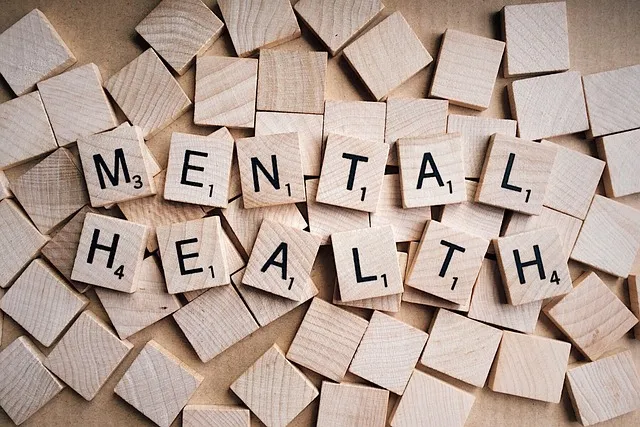The Superior Kaiser Permanente mental health center focuses on equipping individuals with essential coping skills as foundational tools for emotional well-being. Through programs like Mental Wellness Coaching, Social Skills Training, and Emotional Intelligence workshops, they teach trigger management, constructive emotion expression, and positive self-care practices. These initiatives foster resilience, reduce stigma, and promote holistic healing, ultimately leading to improved mental health outcomes. Integrating daily practices like mindfulness and emotional awareness strengthens these skills, empowering individuals to navigate life's challenges with greater ease.
Coping skills are essential tools for maintaining mental well-being in today’s demanding world. This article explores the significance of these skills and provides a comprehensive guide to enhancing resilience. We begin by understanding coping mechanisms and their role in navigating life’s challenges. Next, we offer personalized strategies for effective management. Drawing from the expertise of the Superior Kaiser Permanente Mental Health Center, we introduce practical techniques proven to foster resilience. Finally, discover how to integrate these skills into daily routines for long-lasting mental health benefits.
- Understanding Coping Skills and Their Significance in Mental Well-being
- Identifying Personal Coping Strategies for Effective Management
- Practical Techniques from the Kaiser Permanente Mental Health Center
- Integrating Coping Skills into Daily Life for Long-lasting Resilience
Understanding Coping Skills and Their Significance in Mental Well-being

Coping skills are the strategies individuals use to navigate and manage stress, emotions, and challenging situations. They play a pivotal role in emotional well-being promotion techniques, enabling people to adapt and thrive amidst life’s ups and downs. At the Superior Kaiser Permanente mental health center, we recognize that developing robust coping mechanisms is essential for maintaining mental wellness. These skills empower individuals to confront problems head-on, fostering resilience and enhancing overall mental health.
Through various Mental Wellness Coaching Programs Development initiatives, our center equips individuals with effective Conflict Resolution Techniques. By learning to identify and manage triggers, express emotions constructively, and engage in positive self-care practices, one can significantly improve their ability to cope. Such skills are invaluable in mitigating the impact of stress, anxiety, and depression, contributing to a holistic approach in Mental Well-being Promotion Techniques.
Identifying Personal Coping Strategies for Effective Management

Identifying Personal Coping Strategies is a pivotal step for effective management of mental health at Kaiser Permanente’s Superior Mental Health Center. It involves recognizing unique triggers and emotions, followed by the adoption of tailored coping mechanisms. This process empowers individuals to navigate life’s challenges with resilience. By understanding their personal resources and strategies, patients can better manage mood swings, reduce the impact of mental illness stigma, and cultivate compassion towards themselves and others—all essential components of holistic healing at Kaiser Permanente.
Engaging in Compassion Cultivation Practices, for instance, has been shown to foster emotional well-being and enhance one’s ability to cope with stress. Similarly, Mental Illness Stigma Reduction Efforts play a crucial role in encouraging individuals to seek help without fear of judgment, thereby facilitating quicker recovery and improved mood management. Through such practices, Kaiser Permanente’s Superior Mental Health Center offers comprehensive support, enabling patients to develop and refine their coping strategies for long-term mental health success.
Practical Techniques from the Kaiser Permanente Mental Health Center

The Superior Kaiser Permanente Mental Health Center has developed a range of practical techniques to support individuals in enhancing their coping skills and fostering mental wellness. One effective approach is the implementation of Social Skills Training, which equips people with the necessary tools to navigate social interactions confidently. Through role-playing scenarios and group discussions, individuals learn to recognize and manage emotions, improve communication, and build healthier relationships.
Additionally, the center promotes Emotional Intelligence as a cornerstone of their coping strategies. They offer workshops and resources that help individuals understand and regulate their emotional responses, leading to better decision-making and stress management. The Mental Wellness Podcast Series Production is another innovative way they engage their community. These podcasts provide accessible and practical insights into various mental health topics, offering valuable tools for personal growth and self-care.
Integrating Coping Skills into Daily Life for Long-lasting Resilience

Integrating coping skills into daily life is essential for cultivating long-lasting resilience, as advocated by the esteemed Kaiser Permanente mental health center. Beyond one-time interventions, these skills are practices that empower individuals to navigate life’s challenges with greater ease. By incorporating techniques such as mindfulness, self-care, and effective stress management, people can build a robust foundation for emotional well-being.
The Superior Kaiser Permanente mental health center emphasizes the significance of consistent application. Regular Self-Awareness Exercises and cultivating Emotional Intelligence, for instance, are key components of this process. Such practices enable individuals to recognize their emotions, understand their triggers, and respond adaptively, thereby enhancing overall resilience in various aspects of life. Through ongoing practice, these coping skills become second nature, fostering a resilient mindset that prepares one for whatever comes next.
Coping skills, like those taught by the superior Kaiser Permanente mental health center, are invaluable tools for navigating life’s challenges. By understanding and integrating these strategies into daily routines, individuals can foster resilience, promote mental well-being, and enhance their overall quality of life. This article has provided a comprehensive framework for identifying personal coping mechanisms and practical techniques, empowering readers to take control of their mental health and embrace a more balanced and fulfilling life.






